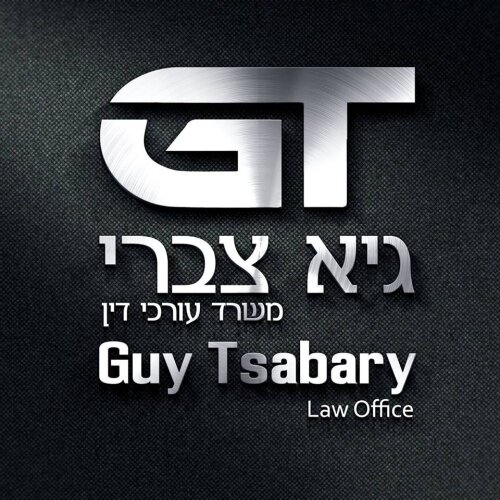Best Citizenship Lawyers in Jerusalem
Share your needs with us, get contacted by law firms.
Free. Takes 2 min.
List of the best lawyers in Jerusalem, Israel
About Citizenship Law in Jerusalem, Israel
Citizenship in Jerusalem, Israel, is a complex and multifaceted subject reflecting the city's unique political, cultural, and historical significance. Citizenship laws are governed by the nationality laws of the State of Israel, and they define the criteria for acquiring, maintaining, and losing citizenship. Since Jerusalem is claimed by both Israelis and Palestinians, there are additional layers of complexity, particularly for those residing in East Jerusalem. Individuals navigating these laws may face numerous legal challenges and sensitive issues, especially in areas involving changing citizenship status, family reunification, and residency rights.
Why You May Need a Lawyer
Dealing with the intricacies of citizenship law in Jerusalem can be daunting due to the numerous legal, administrative, and bureaucratic hurdles involved. Common situations where legal assistance may be necessary include:
- Applying for Citizenship: Legal guidance can help streamline the application process, ensuring that all documentation is complete and correctly submitted.
- Family Reunification: Lawyers can assist in the complex procedures for bringing family members to live together in Jerusalem.
- Resolving Status Disputes: Legal issues related to residency rights, permanent residence applications, or contested citizenship status require professional intervention.
- Dealing with Deportation: Individuals facing the threat of deportation need expert legal defense to contest and appeal the decisions.
- Navigating Dual Citizenship: Legal advice is beneficial for understanding the rights and obligations associated with holding multiple citizenships and the potential conflicts that may arise.
Local Laws Overview
Understanding local laws is crucial for those seeking citizenship in Jerusalem. Key aspects include:
- Law of Return (1950): Grants every Jew the right to immigrate to Israel and obtain citizenship.
- Nationality Law (1952): Outlines different ways to acquire Israeli citizenship: by return, residence, birth, naturalization, and being born to an Israeli parent abroad.
- East Jerusalem Residency: Palestinians in East Jerusalem hold a unique residency status. They are generally not citizens but permanent residents, which affords them certain benefits and responsibilities different from full citizens.
- Family Reunification: Governed by the Citizenship and Entry into Israel Law (Temporary Order), which regulates the status of Palestinian spouses of Israeli citizens and residents.
- Revocation of Citizenship: Citizenship can be revoked for various reasons, including security concerns and fraudulent acquisition.
Frequently Asked Questions
1. How can someone acquire Israeli citizenship?
Israeli citizenship can be acquired through the Law of Return, residence, birth, naturalization, or by being born to an Israeli parent abroad.
2. What rights do East Jerusalem residents have?
East Jerusalem residents typically have permanent residency status, allowing them to live and work in Israel and access social services. However, they do not automatically receive a passport or have the right to vote in national elections.
3. Can Palestinians apply for Israeli citizenship?
Palestinians can apply for Israeli citizenship, but the process is often lengthy and complicated, involving substantial documentation and proof of residency.
4. What is the Law of Return?
The Law of Return grants every Jew the right to immigrate to Israel and obtain citizenship. It also covers descendants of Jews and their spouses.
5. What happens if someone's residency status is revoked?
If residency status is revoked, the individual may lose the right to live in Jerusalem and face deportation. Legal assistance is crucial to appeal such decisions.
6. Can citizenship be inherited?
Yes, Israeli citizenship can be inherited. Children born to an Israeli parent, whether within or outside of Israel, are typically entitled to citizenship at birth.
7. Is dual citizenship allowed in Israel?
Yes, Israel permits dual citizenship. However, individuals should be aware of the legal obligations and rights in both countries of their citizenship.
8. How can someone appeal a deportation order?
Appealing a deportation order typically involves legal action where the individual contests the decision in Israeli courts. Legal representation is vital in these cases.
9. Can a spouse of an Israeli citizen gain citizenship?
Yes, spouses can apply for citizenship or residency through the family reunification process, although it is governed by strict criteria and procedures.
10. What documents are needed for a citizenship application?
Required documents include a valid passport, birth certificate, proof of residency, criminal background check, and other personal documents. Specific requirements may vary based on the application category.
Additional Resources
For those needing more information or legal advice regarding citizenship in Jerusalem, the following resources may be helpful:
- Population and Immigration Authority: Manages matters related to citizenship, residency, and immigration.
- Ministry of Interior: Oversees various aspects of citizenship laws and regulations.
- Local Legal Aid Centers: Provide free or low-cost legal assistance and advisement.
- NGOs: Organizations like the Hotline for Refugees and Migrants, and other human rights groups, offer support and resources.
Next Steps
If you need legal assistance regarding citizenship in Jerusalem, Israel, consider taking the following steps:
- Research: Understand your specific situation and the relevant laws by visiting official government websites and consulting informational resources.
- Contact a Lawyer: Seek professional legal advice from a lawyer who specializes in citizenship law to navigate the complexities of your case.
- Gather Documents: Collect and organize all necessary documentation required for your application or legal action.
- File Applications: Work with your lawyer to prepare and submit any applications or appeals in accordance with legal requirements.
- Stay Informed: Keep up to date with any changes in the law that may affect your status or rights.
Lawzana helps you find the best lawyers and law firms in Jerusalem through a curated and pre-screened list of qualified legal professionals. Our platform offers rankings and detailed profiles of attorneys and law firms, allowing you to compare based on practice areas, including Citizenship, experience, and client feedback.
Each profile includes a description of the firm's areas of practice, client reviews, team members and partners, year of establishment, spoken languages, office locations, contact information, social media presence, and any published articles or resources. Most firms on our platform speak English and are experienced in both local and international legal matters.
Get a quote from top-rated law firms in Jerusalem, Israel — quickly, securely, and without unnecessary hassle.
Disclaimer:
The information provided on this page is for general informational purposes only and does not constitute legal advice. While we strive to ensure the accuracy and relevance of the content, legal information may change over time, and interpretations of the law can vary. You should always consult with a qualified legal professional for advice specific to your situation.
We disclaim all liability for actions taken or not taken based on the content of this page. If you believe any information is incorrect or outdated, please contact us, and we will review and update it where appropriate.

















